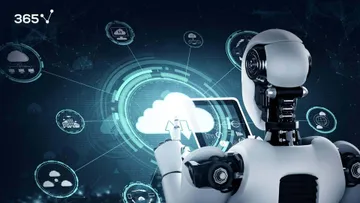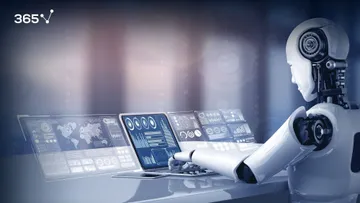Data has become something like the flying cars scenario of our century. Often lauded for its potential to solve all of humanity’s greatest issues and bring about an economic upturn, data and the science behind it are not as benevolent as you might think. But nor are they the end of all days – as doomsayers will have you believe. No, data science is a human science – created by humans for humans today – and we need to interrogate it on its own terms. What drives the mass adoption of data by private companies? What’s good about it – what’s bad about it? Why are so few NGOs and governmental agencies using their data properly and can more be done to amplify the social impact of data?
Data science might not bring about the utopian future we all dreamt of, but it will bring some kind of future. And in this article, you will find out what to expect and how you can be a part of it.
We will examine the so-called “data revolution” and what it means for societal change moving forward. Our focus will be on data’s implications for the public and private sectors, examining the advancements that allow companies to hyper-personalize the content they show us online and their impact on our ability to see eye-to-eye as people. We will also address gaps in the use of data by governmental agencies and NGOs and further our analysis by uncovering the underlying pitfalls of societal action through numbers.
What Does the Data-Fueled Future of Business Look Like?
As with any technological advancement in the last 500 years, it is the competitive nature of global markets that is driving data science innovation today. The 31% recent growth in data science consulting only affirms that the measurable improvements data-driven solutions offer to companies are not easy to overlook. Moreover, data science innovation snowballs – meaning that whenever a company introduces a new data-powered feature, others follow suit looking for even more advanced tools to best their competitor. Solutions providers such as IBM Consulting capitalize on this effect and in the process also create conditions for further innovation.
But is all this just corporate faff or are there larger implications for the advent of data that need to be considered?
Let’s take a look at how companies are leveraging cutting-edge technology to create more rewarding interactions with their products and what this is doing to our ability to understand others around us.
A UX Multiverse
Whether we realize it or not, we are constantly enmeshed in data-collection networks that transform our every move as consumers on the web into actionable insights for the providers of the services and products we use. Take, for example, A/B testing – with over 63% of US companies currently using it, and another 34% planning to start, it is safe to say A/B testing is now a staple in product development, marketing, and even employee satisfaction. It is likely you are involved in dozens of tests every day as companies are optimizing minor features on their front-ends all the time: remember Google’s ’50 shades of blue’ experiment that earned them another 200M in revenue a year? Such imperceptible tweaks and twists can sometimes mean you’re having a vastly different experience of a site or feature compared to someone sitting right next to you.
You Are the Content
And it doesn’t just stop there… One important consequence of the pandemic was the accelerated adoption of AI by businesses, with Natural Language Processing taking the lead according to a recent survey by IBM. Of course, we’ve all known the functionalities of NLP for years from chatbots, virtual assistants, and spell checkers. But cutting-edge NLP technology today is capable of a lot more than correcting your spelling. With its ability to pick up on the finer nuances in human language and meaning, it is at the forefront of the drive for ever more personalized content online. Two key spheres where it excels are customer intent and sentiment analysis. Social media platforms in particular are constantly innovating on their NLP capabilities and becoming ever more precise in their detection of harmful or spam content.
Data and Social Impact: Will They – Won’t They?
While precision-oriented data science is doing wonders for private companies, it isn’t nearly as widely used in the public sphere. According to Kat Townsend, Executive Director of Open Data Collaboratives, changing the status quo might entail a shift from what she calls the “market-first mentality”:
Currently, a market-first mentality governs the decisions and priorities about what data science can do. While there is benefit in anticipating greater consumerism to grow wealth, these forces are not underrepresented in our design for the future. Instead, investment is needed in data science for social impact, which seeks to answer fundamental questions of human well-being.
What will a stronger focus on data science for social impact mean for positive action and policy change and how could data help NGOs and governmental agencies create true impact?
NGOs: Late to The Revolution?
Some years ago, EveryAction released a report highlighting the gaps in NGOs’ data literacy and data strategy. It stated that less than 5% of non-governmental organizations utilize data thoroughly in the decision-making process. But there is a silver lining: 90% of non-profits collect data to help with running operations effectively. It’s just that they aren’t fully capable of unlocking its potential yet. Of course, this creates opportunities for corporate engagement, but more importantly for rethinking how we can use data in the service of humanity. One project that stands out in its unflinching focus on empowering NGOs to use their data more effectively is Data Kind. Some of their recent work involves using time series forecasting to improve access to safe sanitation in Kenya, utilizing data to lift people out of homelessness in Wales, and leveraging machine learning to facilitate rural Indian households’ access to electricity.
Why Are Governments So Inadept at Using Data?
Many of the same benefits that drive corporate mass-scale adoption of data science are behind the datafication of the public sector as well: better decision-making, better leadership, better staffing. Non-profit organizations such as the Data for Policy initiative are leading the push for the implementation of data-driven processes at all levels of government from better urban planning and a more unbiased police force to COVID-19 response measures. That being said, governments have a lot of catching up to do when it comes to data. Lack of financing for data science departments means attracting the best and brightest away from the corporate sector is getting increasingly harder. The international Data Science for Social Good Fellowship seeks to address this issue by supporting scientists working at the intersection of policy and data. Along the way they are helping to tackle a fundamental issue – fair data use.
The Double-Edged Sword of Overly Personalized Data
While improving our consumer journeys with ever more personalized content, brands are also inadvertently widening already colossal rifts in the social fabric. It might seem harmless or even desired at first but having a different experience of online space compared to others in your community can be alienating and even dangerous. Polarization on the web is a notorious issue, with countless fractions endlessly going at it in comment sections and forums. And while data science is being employed to ameliorate such issues, it is also deepening them. There is the risk that with the advent of web.3 our data will be used to “assign us” to sections of the immersive internet where we would feel most at home, giving a new meaning to the term online echo chambers.
Towards Human-Centered Data Science
We like to think that data science is the ultimate unifier – we are all equal in data. But is that really so? Data-driven technologies are created by humans, and with anything that humans create, there are hidden biases. Recent talk of the seemingly irradicable AI bias has sparked heated debate. Initially, the response to biased data was to look for technical quick fixes. But more and more scientists are now looking towards the wider societal and behavioral factors that influence the way we design technology, as a recent National Institute of Standards and Technology (US) report has done. Perhaps, as Kate Townsend again argues: “We need tools to be driven by those with the expertise and experience, those who have dedicated their lives to combating domestic violence, homelessness, pollution, bigotry in all forms.” But maybe the key to that lies somewhere in the future, where data literacy has reached global levels and human-centered data science is at last possible.
The Data Revolution Needs YOU
Or is this future already here? Looking at the unprecedented advancements in healthcare brought about by IoT (Internet of Things) technology, or data science’s key role in solving climate change spotlighted in numerous projects such as those launched by the DS Institute at Columbia, you might be tempted to answer positively. Yet, many are bound to appreciate such data-driven innovations from the sidelines due to what is often perceived as the incomprehensive nature of data. Moreover, they are denied the chance to bring their unique expertise in other areas to the table, simply because of the often-formidable barriers to entry. For data to truly make a mark on the future of society, we all need to have our say.
Thankfully, with the recent explosion of on-demand online courses, this is becoming easier and easier. You don’t need to beaver away for years on end to obtain an overpriced university degree anymore – providers such as 365 Data Science offer cost-effective, beginner-friendly data science courses that have improved the data literacy of millions. Creating a data-first culture won’t happen overnight, but with so many opportunities to learn and upskill today, it is easier than ever to find your place in the data revolution taking the world by storm.







